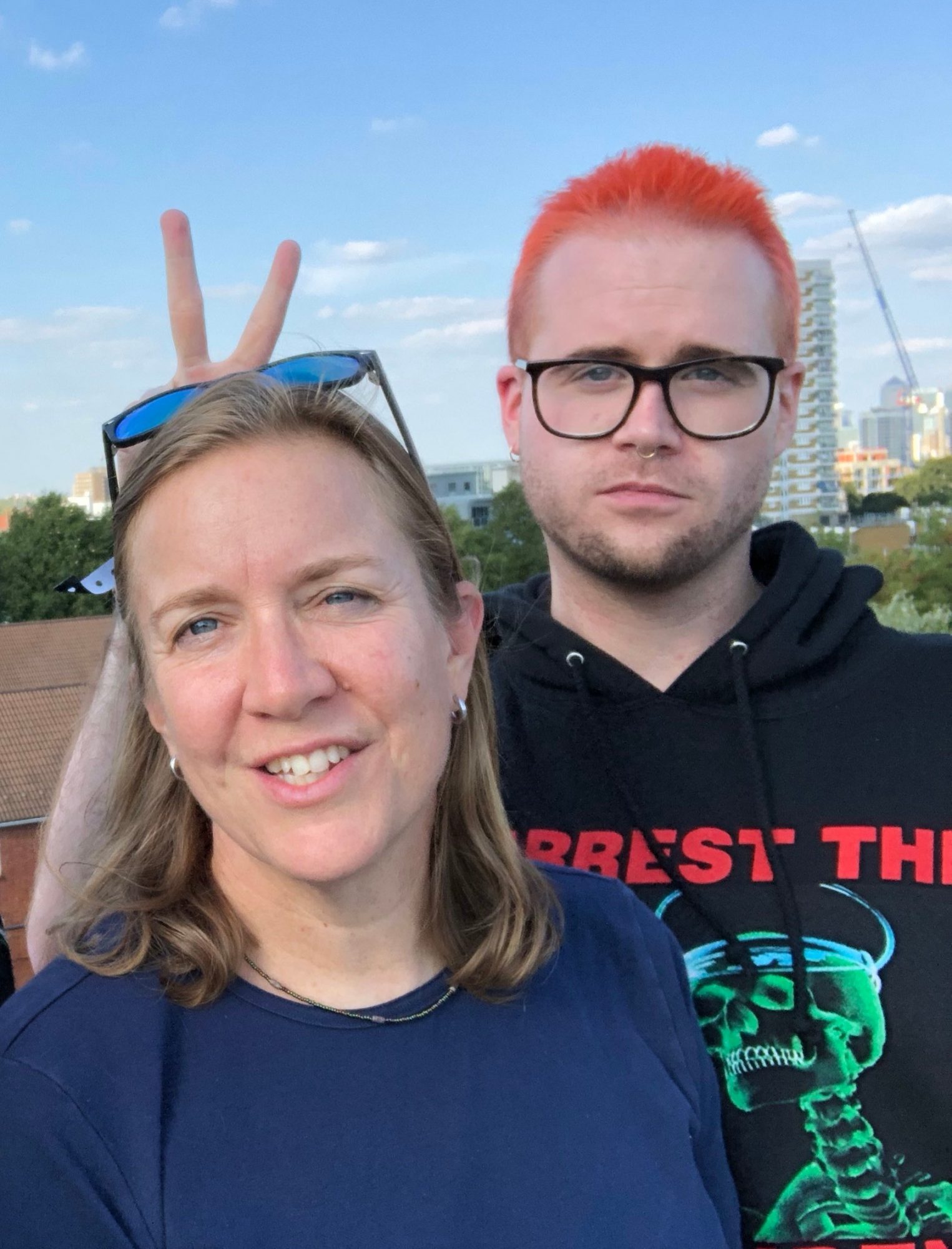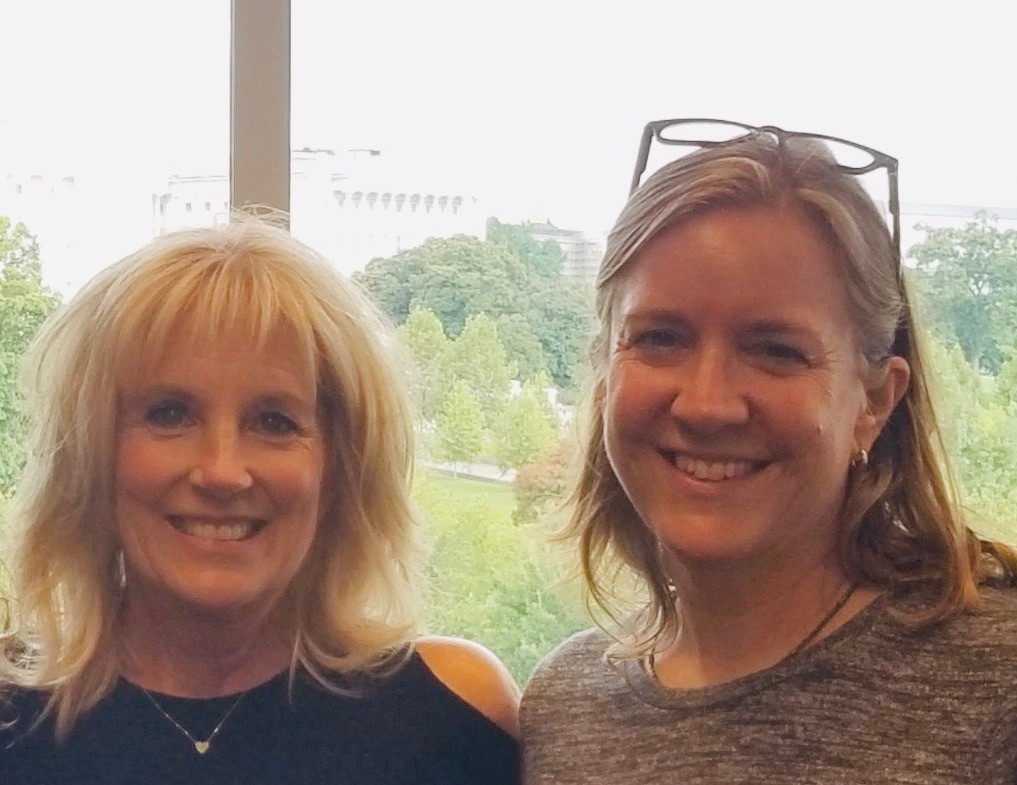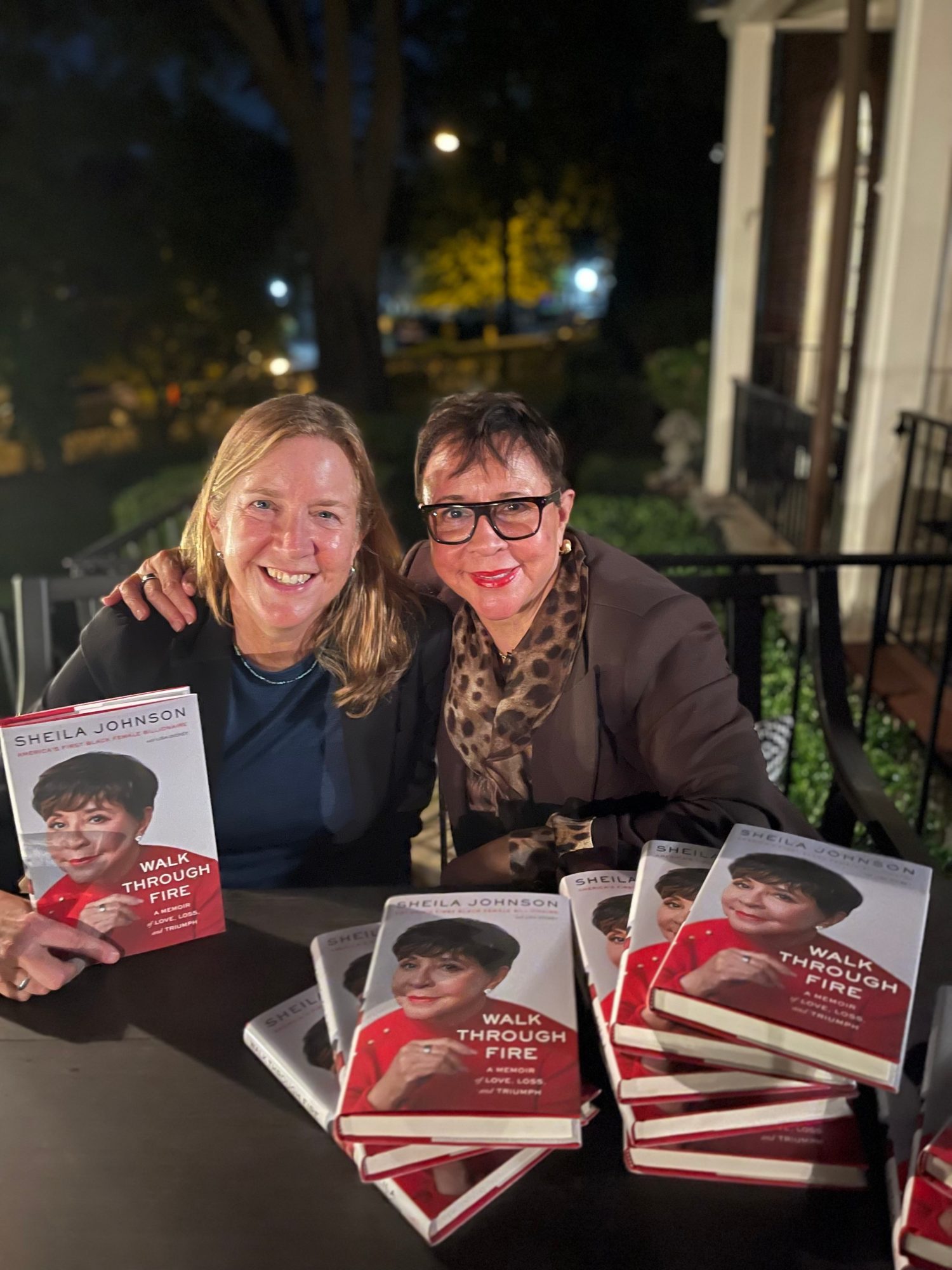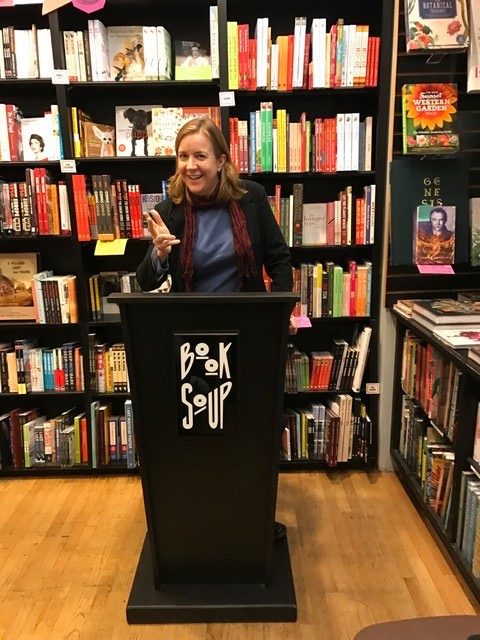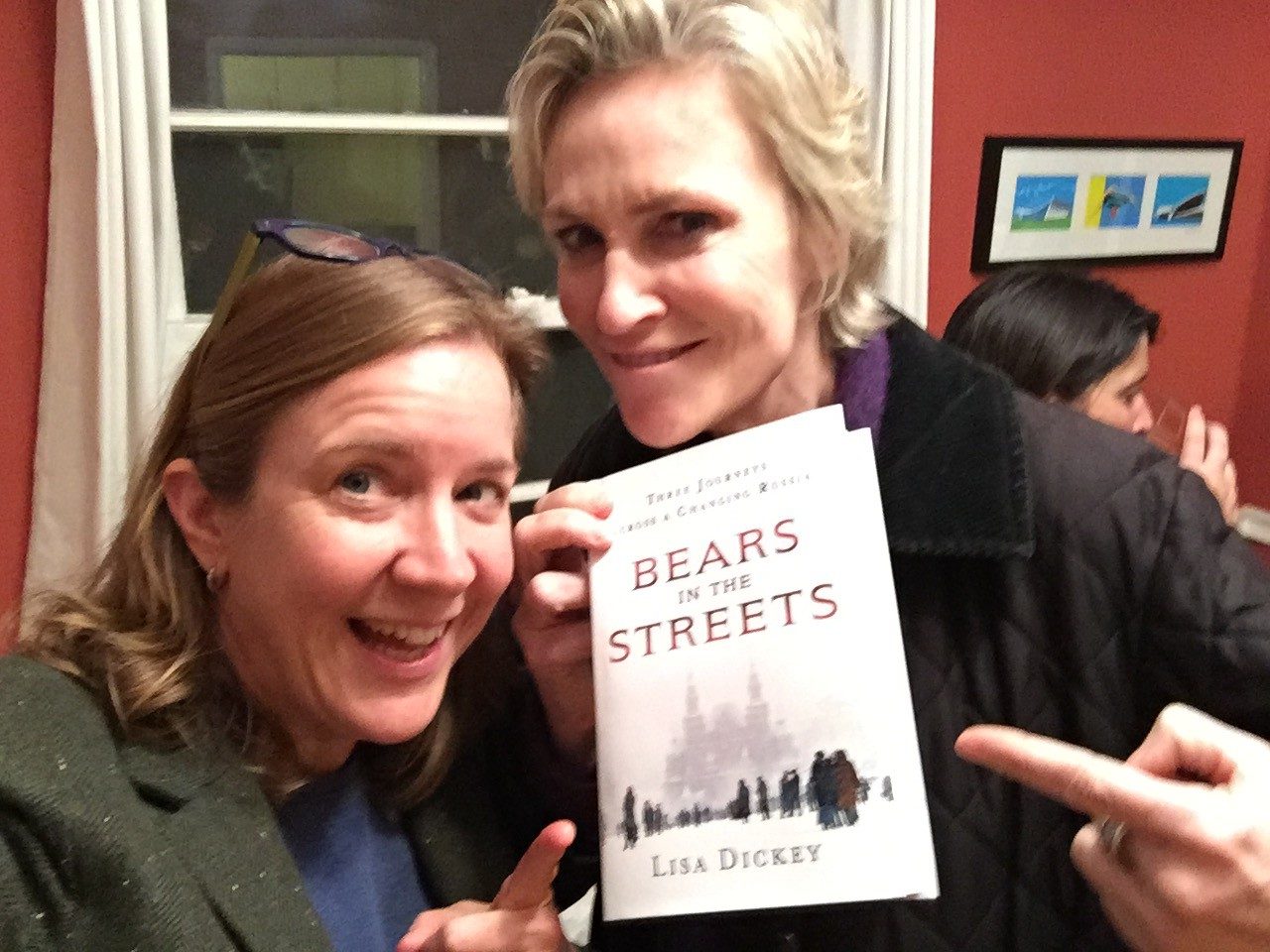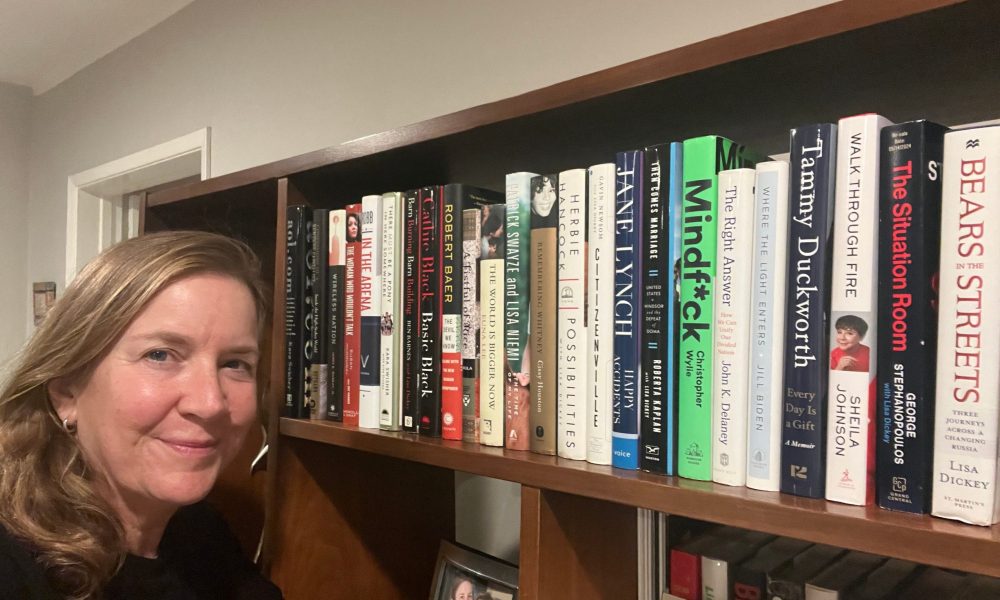

Today we’d like to introduce you to Lisa Dickey.
Hi Lisa, we’d love for you to start by introducing yourself.
I started my writing career in the mid-1990s, working as a freelance journalist in St. Petersburg, Russia. I’d studied Russian in college and lived in Moscow for a short time in the late 1980s, so I thought it would be a fun and fascinating place to start writing. Russia was just coming out of the Soviet era, so it was an amazing time to be there. After a couple of years writing for the Moscow Times, I came home to the US and met with a friend who’d just gotten a book deal to write about a then-small company called America Online. She was having trouble getting started and asked if I’d stick around and help her with the book, so I did. That friend, Kara Swisher, is now a famous tech journalist, and the book AOL.COM, was my first collaboration. Even though I still had an apartment in Russia, I decided to stay in the US and see if I could make a career out of helping people write books.
Over the next few years, living in Washington, DC, I helped seven different clients write books, mostly on business and political topics. My first “famous” client was Susan McDougal, who was a partner in the Whitewater deal that led to Bill Clinton’s impeachment. Her book, “The Woman Who Wouldn’t Talk,” was my first NYT best seller. I did a few more books in DC, then in 2007 I moved to Los Angeles.
In LA, I managed to tap into a different demographic: entertainers. I helped Patrick Swayze write his memoir just before he passed in 2009 and worked with Whitney Houston’s mother, Cissy Houston, on a book about her daughter. I also helped jazz great Herbie Hancock, one of my favorite clients, write his memoir. Lately, I’ve gotten back to doing political books, including ones with First Lady Jill Biden, Governor Gavin Newsom, and Senator Tammy Duckworth. My next book, due out in May 2024, is The Situation Room, by George Stephanopoulos with Lisa Dickey.
Can you talk to us a bit about the challenges and lessons you’ve learned along the way. Looking back would you say it’s been easy or smooth in retrospect?
I’ve been very fortunate in my career, but I’ve also worked my butt off. In the beginning, I had to hustle to find good book projects. Where do you go to find someone who (a) needs a ghostwriter/collaborator, (b) has the money to pay for one, and (c) has a genuinely interesting idea for a book? In those early years, I mostly found projects through word of mouth, and I was always stressed about finding the next good one. Now that I’ve done more than 20 books, including 10 New York Times bestsellers, people tend to come to me. There are pitfalls to any shared creative endeavor, and that certainly includes collaborating on a book… I’ve had a few clients who, even though they hired me for my book-writing expertise, have trouble letting go. Writing a book — especially a memoir — is an extremely personal endeavor. People get nervous, and they want to have control of the situation. It’s understandable! But the books that turn out the best are the ones where the client trusts me to do my job. Luckily for me, the vast majority of people I’ve worked with fall into this category. I’ve had waaaay more good collaborations than bad ones.
Thanks – so what else should our readers know about your work and what you’re currently focused on?
Some ghostwriters/book collaborators specialize in particular topics, but I never wanted to be hemmed in that way. It’s fascinating to jump around to a variety of topics, as each book ends up being a whole education in itself. I’ve learned jazz theory from Herbie Hancock, the greatest jazz pianist in the world. With George Stephanopoulos, I got to interview more than a hundred people who served in the White House Situation Room. The pink-haired Cambridge Analytica whistleblower, Chris Wylie, explained to me over cocktails how Facebook was used to sway the 2016 election. And Senator Tammy Duckworth shared the minute-by-minute account of how her helicopter was shot down over Iraq and the harrowing details of her recovery. With every book, I feel like I’m getting a Master’s degree in a different subject. I’m happy to have that versatility in my work and proud to be able to channel so many different kinds of people. I’ve written in the voices of a septuagenarian Texan, a South Korean mom held captive in Pyongyang, a former spy writing about Iran, and a gospel singer. There’s something about the rhythm and flow of the way people speak that just implants itself in my ear.
We all have a different way of looking at and defining success. How do you define success?
I would never presume to define success for anyone else. But success for me is knowing that books I’ve worked on are being read by people all over the world. Any book job I take must fulfill two criteria: Is it telling a story that hasn’t yet been told? And does it have universal elements that people can relate to, and be helped by? If the answer to either question is “no,” I don’t take that project. Every book I write has a reason to exist in the world. And it’s immensely fulfilling to know that I’ve been able to help tell these stories and preserve these thoughts and memories for posterity.
I’m also happy that after helping so many others write their books, I was able to publish a book of my own in 2017. “Bears in the Streets: Three Journeys Across a Changing Russia” was twenty years in the making, a true labor of love. On my bookshelf, I have a framed handwritten note from Madeleine Albright, telling me she found it “brilliant, real and readable.” I nearly fell out when I got that in the mail.
Contact Info:
- Website: https://lisadickey.com
- Other: Threads: @lisawritesbooks
